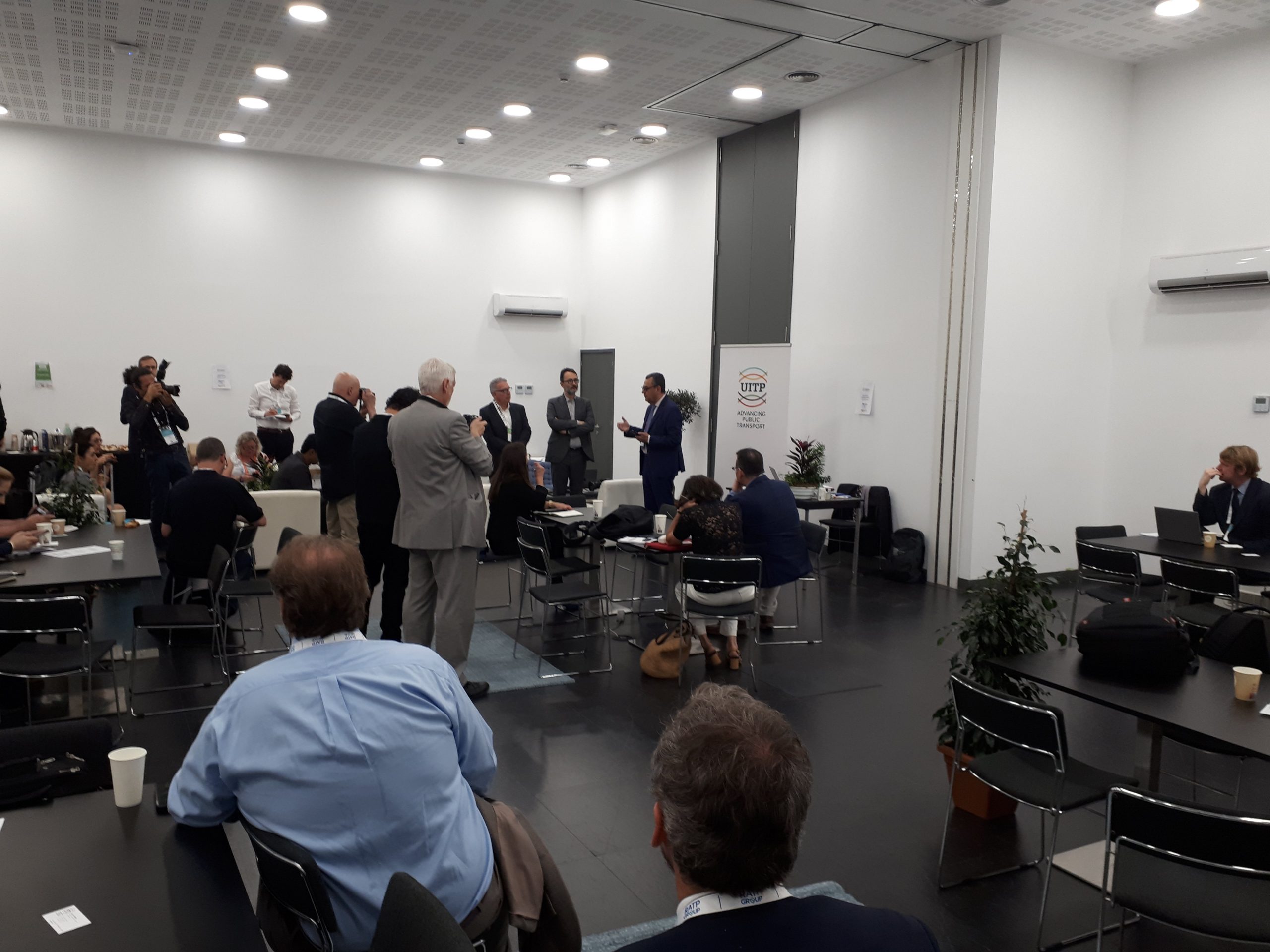 Urban public transport is recovering from pandemic and plays a more and more important role in the definition of the society and economy achieving to reach the ambitious climate change goals. It’s pivotal position to bring enormous benefits to the world should be strengthened by the policy makers that through actions and measures can meet climate issue while providing opportunities to communities.
Urban public transport is recovering from pandemic and plays a more and more important role in the definition of the society and economy achieving to reach the ambitious climate change goals. It’s pivotal position to bring enormous benefits to the world should be strengthened by the policy makers that through actions and measures can meet climate issue while providing opportunities to communities.
Its essential position to bring enormous benefits to the world is to be approached both from the perspective of decarbonisation, as well as from other angles such as a much more compact thinking of what urban public transport means as an ecosystem, its redefinition, the contribution to development the business environment, but also the workforce.
“To attract the attention of political decision-makers, UITP together with leaders of public transport sector will sign a joint declaration – Barcelona Declaration – which highlights the importance of public transport and what it can do for people, for progress and for the planet – the decarbonisation being an essential aspect,” Mohamed Mezghani, the Secretary General of the International Association of Public Transport (UITP) said at the global public transport summit held in Barcelona on 4-7 June.
The representative of the association has underlined some aspects the public transport needs to be approached to deliver society great benefits.
“First, I would like to reiterate the decarbonisation issue that, in this sector, can be solved by the public transport which helped several cities to cut emissions. And this means it is doing its work. When we shift from car to public transport undoubtedly, we contribute to the reduction of emissions. In addition, this sector is renewing its fleet by acquiring and introducing new electric vehicles to replace the existing ones,” Mohamed Mezghani explained.
According to a survey of UITP member, 72% already have a carbon neutrality target or a vision and 81% of the operators and authorities already have an energy transition strategy including both electrification of the vehicle fleet and investing in new and modern vehicles powered alternative energy sources such as hydrogen and biofuels.
The transition to renewable energy, acquiring and introduction of zero-emission vehicles and digital technologies and make public transport more attractive are key to a modal shift. Transport sector accounts for a quarter of global energy-related CO2 emissions at global level. And even though the number of clean busses increased rapidly, nearly doubling in Europe over the past five years, ‘non clean vehicles’ still make up 77% of bus fleets globally according to the UITP survey. Decarbonising public transport and increasing its modal share is the fastest and most cost-efficient way to achieve decarbonised mobility.
The second issue consists of the redefinition of the urban public transport which is not a mass transit system anymore. It incorporates car sharing, bike sharing as well as scooter sharing. The problem is the car. So, we have to combine mass transit with the other mobility means creating a true public transport system proving people the best options to travel,” UITP Secretary General said.
As a consequence of the covid pandemic a new aspect this sector is facing is related skills shortages including driver and mechanical jobs at global level. As an example, in cities like Vienna and Brussels the public transport is the first employer. Thus, UITP’s message underlines that “public transport needs to strengthen its brand as an employer who is also embracing diversity. We need to make public transport more attractive in this respect, too. Although of the total number of passengers, the largest share – 70-80% is represented by women, they are employed in a small part – about 22%, which highlights the need for a different approach.”
Other underlined issues refer to digitalisation, which also plays a key role in public transport ability to modernise itself, as well as the business model which need to be tackled from cost and revenue point of view. The increased prices in energy put pressure on operators’ costs which are also facing challenges in revenues – a policy that can be regulated by local and regional authorities. According to UITP, energy costs account for roughly 30% to 50% of the total public transport budget. Transitioning to owned sustainable energy supplies or cooperating with energy providers and local stakeholders can save costs.
A common and comprehensive approach to shift private car journeys to urban public transport will result in a better environment and “we have to convince policy makers to think on long term as the results of actions and measures can be seen over a 10-15-year period. This will be in the benefit of cities and our environment, while boosting business environments,” Mohamed Mezghani concluded.
Share on:



